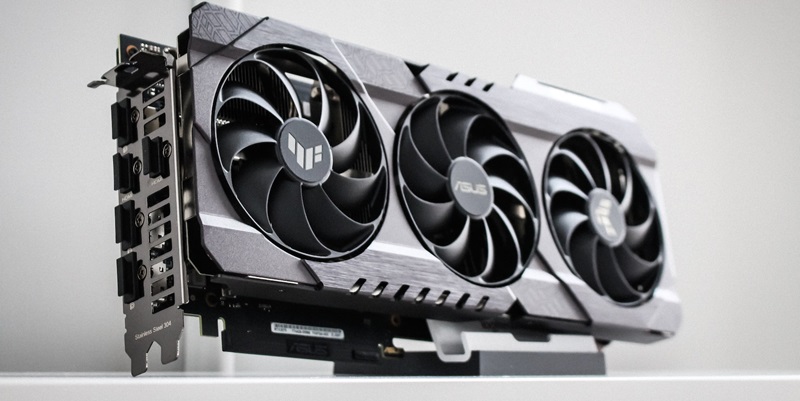AMD has unveiled its highly anticipated ROCm 6.0 software stack, accompanied by the availability of the full source code. This release brings a array of new features and improvements, including support for the Instinct MI300A/MIX300X AI accelerators and Radeon 7000 GPUs. With ROCm 6.0, AMD is intensifying the competition with NVIDIA’s CUDA in the GPU market.
ROCm 6.0 vs. NVIDIA’s CUDA
With the launch of ROCm 6.0, AMD aims to challenge NVIDIA’s CUDA and establish itself as a formidable competitor in the GPU space. By offering a powerful alternative, AMD is driving innovation and fostering a more diverse GPU ecosystem. This move is set to reshape the dynamics of the market and provide consumers with increased choice and flexibility.
Support for Instinct MI300A/MIX300X AI Accelerators
A prominent feature of ROCm 6.0 is its support for AMD’s latest AI accelerators, the Instinct MI300A and MI300X. These accelerators deliver unparalleled computing performance and efficiency, enabling enterprises and researchers to tackle complex AI workloads effectively. In tandem with the advancements of the ROCm platform, AMD’s Instinct GPUs showcase impressive performance results across a range of applications.
Platform Improvements for Instinct GPUs
The improvements made within the ROCm platform significantly boost performance for Instinct GPUs. AMD has made substantial enhancements to optimize AI workloads, ensuring that users can leverage the full potential of their Instinct GPUs. These enhancements bridge the gap with NVIDIA’s offerings and provide a compelling solution for AI professionals.
Compatibility limitations
While ROCm 6.0 introduces support for the latest Instinct GPUs, it currently lacks compatibility with Red Hat Enterprise Linux 9. However, AMD assures users that support for Red Hat Enterprise Linux 9 will be introduced in the future. With this upcoming enhancement, users will have the ability to fully utilize ROCm 6.0’s capabilities on their preferred operating system.
Additional library support
ROCm 6.0 brings support for several additional libraries, expanding the software ecosystem for AMD users. DeepSpeed, ONNX-RT, Jax, and CuPy are now compatible with ROCm 6.0, empowering developers with more tools and resources to excel in their AI endeavors. This broadened library support enhances productivity and fosters innovation within the AMD community.
Enhanced AI Workload Performance
The introduction of ROCm 6.0 brings significant advancements in terms of AI workload performance. Notably, ROCm 6.0 supports FP8 performance in PyTorch and hipblasLT. These enhancements enable users to extract maximum efficiency and productivity from their AI workloads, further solidifying AMD’s position as a leading provider of GPU solutions.
Software parity with CUDA
With ROCm 6.0, AMD has achieved software parity with CUDA for large language model training. This major milestone underscores AMD’s commitment to narrowing the gap in AI-focused software resources. By matching the capabilities of CUDA, AMD provides researchers and developers with a compelling alternative to NVIDIA, fostering healthy competition and driving innovation.
AMD’s closing of the AI software resource gap
AMD’s release of ROCm 6.0 signifies a significant step towards closing the AI software resource gap that NVIDIA has dominated in recent years. The combination of ROCm 6.0’s feature-rich software stack and support for the latest graphics cards ensures that AMD users can leverage cutting-edge AI tools and technologies. This advancement empowers AI professionals and researchers to push the boundaries of innovation while benefiting from an expanding software ecosystem.
Full source code availability
With the release of ROCm 6.0, users can now download the full source code, granting them access to an extensive list of supported Radeon 7000 and Instinct GPUs. This transparency and openness signify AMD’s commitment to empowering the developer community and encouraging collaboration. By providing the full source code, AMD enables users to customize and optimize their GPU experience, fostering a vibrant and thriving user-driven ecosystem.
In conclusion, AMD’s ROCm 6.0 release, with its comprehensive software stack and support for advanced GPUs, represents a significant milestone towards challenging NVIDIA’s CUDA. The required software parity, compatibility expansions, and increased library support narrow the gap in AI-focused software resources. With ROCm 6.0, AMD empowers researchers and developers to leverage the full potential of their GPUs, fueling innovation and driving the advancement of AI technologies.

